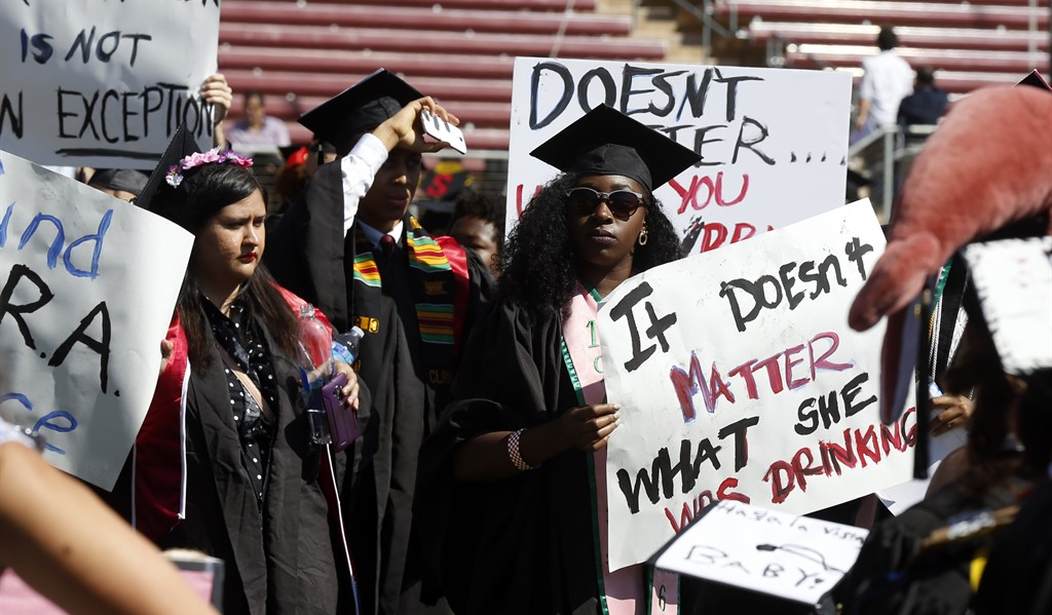4,964 is the number of sexual assaults reported at four-year U.S. colleges and universities in 2014. College campuses all throughout the country have become plagued by a disease—the disease consists of a group of individuals who think it is okay to sexually assault others in a way that devastates lives forever. According to the Department of Education, the numbers are quite staggering regardless of what geographic region is analyzed.
While almost 100 colleges and universities had at least 10 rapes on their main campuses during 2014, Brown University (Rhode Island) and the University of Connecticut reported the highest number with 43 each. Dartmouth College (New Hampshire) and Harvard University (Massachusetts) with 42 and 33, respectively. On the opposite side of the country was Stanford University (California) with 26. In June 2015, the Kaiser Family Foundation published a national poll that found one in five women who attended a residential college over a four-year time period said they had experienced sexual assault. Another daunting data point is that for Reed College (Oregon), the school registered 12.9 reports of rape on its main campuses per 1,000 students. That number was 11.5 for Wesleyan University (Connecticut). Even scarier is the fact that these statistics do not take into account all of the instances where rape or other forms of sexual assault go unreported.
According to the National Institute of Justice, underreporting of sexual assault can be attributed to a variety of factors that affect victims, including but not limited to self-blame, guilt, shame, embarrassment, humiliation, fear, lack of trust in the criminal justice system, and unawareness of how to report. The Bureau of Justice Statistics indicates that the majority of rapes and sexual assaults committed against women and girls between 1992 and 2000 were not reported to authorities, as only 36% of rapes, 34% of attempted rapes, and 26% of sexual assaults were reported. So when one asks the question as to why there are such high reports of rape and sexual assault on college campuses, and yet the perpetrators of such vicious acts go without being criminally charged, the answer lies in the willingness of the victim to notify the police. It is understandable that survivors are reluctant to report sexual assault to the criminal justice system because the process can tend to re-victimize them. Moreover, only approximately 5% of reported rapes result in a prison sentence.
Recommended
Title IX mandates that schools combat sex discrimination in education, affording survivors a parallel option for survivors as institutions attempt to preclude and respond to sexual violence. However, many colleges are failing to live up to the standards and obligations set by civil rights law. Nevertheless, passing a series of bills in Congress that would mandate colleges and universities to turn over certain sexual assault cases to local law enforcement (without the victim’s consent) has the potential to yield even more devastating results. Victims may be less inclined to report to anyone for fear of reprisal, or because entering their experience into a police database further extends the chances of reliving the trauma.
Survivors of sexual violence are not prevented from reporting to the local authorities if they decide to report to their schools—the two forms of reporting are not mutually exclusive. A survivor may choose to go one way or the other, or perhaps both. But in all of this, it is crucial to remember that situations vary from case to case and that it is very important to provide all students with the relevant information and modes of access when it comes to finding help from the proper personnel. Without educating our community about the available tools, resources, and outlets to fight against this disgusting disease, we are more likely to continue seeing more sexual assaults occur—and even worse, more sexual assaults go unreported.

























Join the conversation as a VIP Member